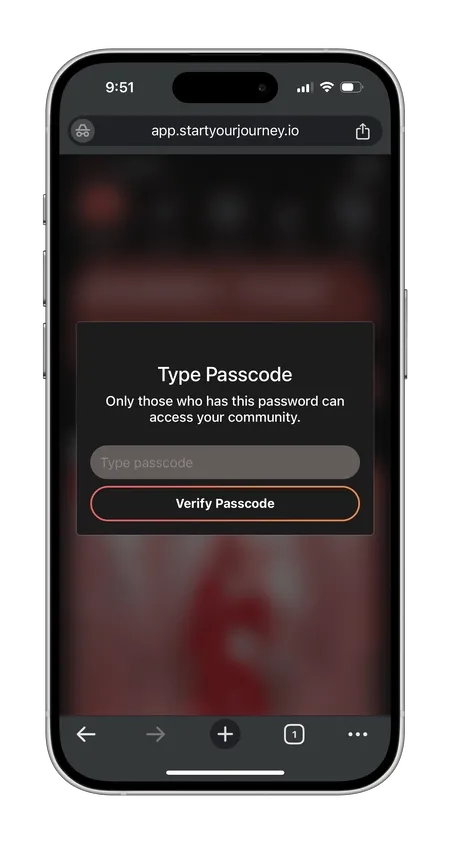In an era where meaningful connections often slip through the digital cracks, virtual community mentor programs offer a lifeline to genuine relationships. Imagine a space where mentorship transcends geographic boundaries and technology transforms into a tool for personal and professional growth. These programs not only redefine the traditional mentor-mentee dynamic but also cultivate an inclusive communal environment. By leveraging cutting-edge platforms like Silver Lining Mentoring’s e-Mentoring, participants engage in secure, flexible interactions that support lasting connections. Structured programs requiring just a few hours monthly commitment foster skills essential for career and personal development. As technology continues to bridge distances, virtual mentors guide others with precision, transforming lives through approachable, goal-focused frameworks. Dive in to discover how these digital mentorship strategies are enhancing community engagement and elevating the quality of connections.

Virtual community mentor programs create thriving hubs where like-minded individuals connect through meaningful interactions. These programs leverage secure, mobile-friendly platforms that blend video, text, and chat tools to foster authentic relationships between mentors and mentees. Unlike superficial social media, these environments prioritize trust, safety, and long-term engagement, enabling participants to share ideas, experiences, and resources that enrich personal and professional growth. Key features that enhance genuine connections include:

Virtual community mentor programs unlock increased accessibility and flexibility, making mentorship available beyond geographical and scheduling constraints. This accessibility empowers individuals to engage in meaningful guidance and personal growth regardless of their location or time zone. These programs foster enduring relationships that support diverse goals such as career advancement, education, and life skills development. The flexibility inherent in virtual mentoring allows both mentors and mentees to tailor interactions to their unique needs. Programs like Silver Lining Mentoring highlight how structured training and regular check-ins enhance these relationships, ensuring consistent support and measurable progress toward goals.

Virtual community mentor programs operate as dynamic hubs where mentors and mentees connect through secure, mobile-friendly platforms. These programs start with an application process, followed by careful screening and matching to align mentors’ expertise with mentees’ goals. Once matched, participants engage in scheduled video or chat sessions, supported by regular training and ongoing assessments that ensure the mentoring relationship remains focused and productive. Key steps in participation include:

Virtual community mentor programs have proven to be powerful catalysts for personal development and career advancement. For example, Silver Lining Mentoring’s e-Mentoring program highlights how structured support, including extensive mentor training and monthly check-ins, leads to measurable outcomes. Mentees report enhanced life skills and progress toward goals such as job searching, housing, and education. These success stories underscore how consistent engagement and expert guidance transform virtual mentorship into a fulfilling endeavor. Technology plays a crucial role in sustaining these connections. Platforms that integrate secure messaging, video conferencing, and ongoing tracking enable mentors and mentees to maintain meaningful communication regardless of distance. The blend of flexible scheduling and systematic matching ensures that relationships remain focused and productive over time. Such programs foster a sense of belonging and mutual growth through vibrant, well-managed digital environments.

Trust forms the backbone of any successful virtual mentoring relationship. Effective communication is central to building this trust, requiring mentors and mentees to engage frequently through chat, audio, and video interactions. Consistent, open dialogue fosters understanding, encourages honest feedback, and creates a safe digital space where both parties feel valued and heard. Structured communication also clarifies expectations, helping to align goals and deepen collaboration. Implementing clear strategies to nurture trust in virtual environments enhances the mentoring experience. Frequent check-ins and transparent feedback loops allow for continuous adjustment and growth. Using secure platforms safeguards privacy and encourages openness. Scheduling regular virtual meetups ensures sustained engagement, reinforcing commitment and mutual support between mentors and mentees.

Virtual community mentor programs face several critical challenges that can impact their effectiveness. Inconsistent mentor participation often disrupts the continuity necessary for meaningful growth. Scheduling conflicts arise frequently due to differing time zones and personal commitments, making it difficult to maintain regular interactions. Additionally, technological barriers such as unreliable internet connections or unfamiliarity with digital tools can hinder seamless communication. These challenges complicate creating authentic connections and sustaining long-term engagement. Ensuring quality in virtual mentoring requires addressing these issues with intentional strategies. Programs must implement robust frameworks for regular evaluation to monitor mentor commitment and mentee progress. Maintaining a safe, trustworthy environment also demands advanced remote mentoring tools that enhance communication and collaboration. Despite these hurdles, well-designed virtual programs can foster rich, fulfilling relationships when supported by effective management and flexible policies.

Starting your journey with a virtual community mentor program begins with a straightforward yet crucial process designed to align your goals with the right mentor. These programs often feature intuitive, mobile-friendly platforms that guide you through account creation and profile setup, ensuring your unique interests and needs are clearly showcased. This foundation enables a seamless connection with mentors who can offer focused guidance and support.
Understanding virtual community mentor programs means embracing their structure and purpose while recognizing their role in personal and professional growth. These programs offer flexible, goal-oriented mentorship while technology facilitates deeper connections. As illustrated, the Silver Lining Mentoring e-Mentoring program highlights the profound impact of digital mentorship strategies.
Through these virtual platforms, individuals can benefit from increased accessibility and the opportunity to build genuine connections. By participating in these initiatives, everyone can explore growth in a nurturing environment. Embrace the power of virtual mentoring and see how it transforms your journey.
A: Free virtual community mentor programs aim to connect mentors and mentees online. These programs offer accessible mentorship opportunities at no cost, enabling personal and career growth through digital interactions.
A: Virtual mentoring programs for youth provide tailored guidance to help young individuals develop critical life skills. These programs focus on academic support, career advice, and personal development in a secure online environment.
A: The best online mentoring platforms, like Qooper and Silver Lining Mentoring, offer customizable solutions, secure access, and flexible scheduling. These platforms connect individuals with mentors based on shared goals and interests.
A: To volunteer for virtual mentoring, sign up on platforms offering remote mentorship. Complete the application and training process, then commit a few hours monthly to guide mentees, fostering their development and growth.
A: Virtual mentorship programs enhance accessibility and flexibility, improving digital literacy and communication skills. They offer networking opportunities and support measurable professional and personal growth through structured feedback and peer networks.
A: Nonprofit mentoring programs operate to support underserved communities, often relying on volunteer mentors. These programs focus on enabling mentee growth in key areas such as education and career readiness through digital interaction.